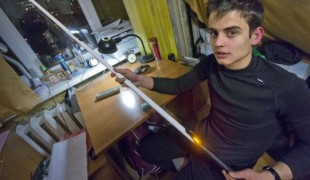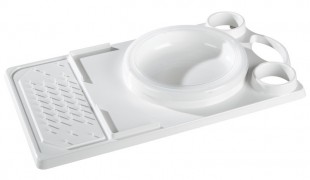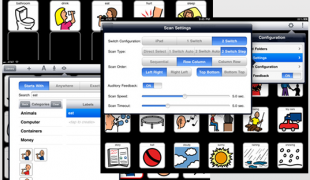- 7458
- 525
- 11
- 5
- 0
- Help Ukraine
About the solution
Dr. Hong Sheng Chiong is an ophthalmologist in New Zealand. While doing clinical practices in Kenya and Nepal, Dr. Hong was shocked by the limited tertiary eye care as well as poor hygiene and conditions of local hospitals and clinics. “It is far too often we see patients being mistreated for their eye conditions at the community level”, he said.
So the doctor developed insight on fighting preventable blindness, and realized there was an urgent need for a cheap and accessible solution to eliminate the gap for eye care in the primary sector – a portable eye detection device available at the primary eye clinics globally, especially those in the regions with limited economic and medical conditions.
Dr. Hong believes that a picture of the eye is always better than a thousand words. He was considering using the smartphone as a diagnostic tool for the eye. He learned product design and coding by himself, and experimented on fish eyes, his wife and even his son. In 2014, along with a few medical and 3D printing design specialists, Dr. Hong co-founded oDocs, a social enterprise start-up helping optometrists identify eye damage and restore eyesight to the blind, using smartphones. The group managed to come up with a functional prototype for asmartphone-based retinal camera.
The invention, oDocs Fundus, is the first open source smartphone ophthalmoscope in the world. Anyone can print out the components and assemble them into a smartphone adaptable retinal imaging device. The price is as lower as 20 USD, only 1% of the cost of professional devices. The product design had been downloaded by over 10,000 ophthalmologists around the world. oDocs has also received numerous awards in New Zealand and in other countries.
Adapted from:
https://nzentrepreneur.co.nz/dr-hong-sheng-chiong-odocs/
这些解决方案不应包括使用药物,化学品或生物制品(包括食品);创伤性设备;冒犯性的,商业或内在危险的内容。该解决方案未经医学验证。请谨慎进行!如果您有任何疑问,请咨询健康专家。
DISCLAIMER: This story was written by someone who is not the author of the solution, therefore please be advised that, although it was written with the utmost respect for the innovation and the innovator, there can be some incorrect statements. If you find any errors please contact the patient Innovation team via info@patient-innovation.com
-
-
1132
-
8
-
28351

学生为盲人发明了会说话的盲杖
WALKING WITH A WALKING AID: Walking with a walking aid
Urban exploration
COMMUNICATION: Communicating, whether by speaking, listening, or other means
Blindness
5 Senses support devices: (glasses, hearing aids, headphones...)
Assistive Daily Life Device (to help ADL)
AI algorithm
Vision problems
Restoring mobility
Promoting self-management
Managing Neurological Disorders
Promoting inclusivity and social integration
Ophthalmology
Solutions for Disabled people
Russian Federation
-
-
-
878
-
2
-
20700

女子发明托盘帮助截肢者自主进食
Cooking
(SELF)-CARE: EATING: Eating independently.
Limb Amputation
Limb Deformity
Assistive Daily Life Device (to help ADL)
Muscle weakness
Limited range of motion
Muscle pain or stiffness
Loss of muscle coordination
Muscle cramps or spasms
Muscle twitching
Restoring mobility
Promoting self-management
General and Family Medicine
Orthopedics
France
-
-
-
734
-
6
-
16689

App to teach communication
COMMUNICATION: Communicating, whether by speaking, listening, or other means
CAREGIVING
Autism
Cerebral Palsy
Angelman's Syndrome
Rett’s Syndrome
Website
Social withdrawal or isolation
Difficulty speaking or understanding speech
Promoting self-management
Building Supportive Community Relationships
Promoting inclusivity and social integration
Improving Speech and Communication
Caregiving Support
Child and Adolescent Psychiatry
General and Family Medicine
Neurology
Pediatrics
United States
-
 zh
zh